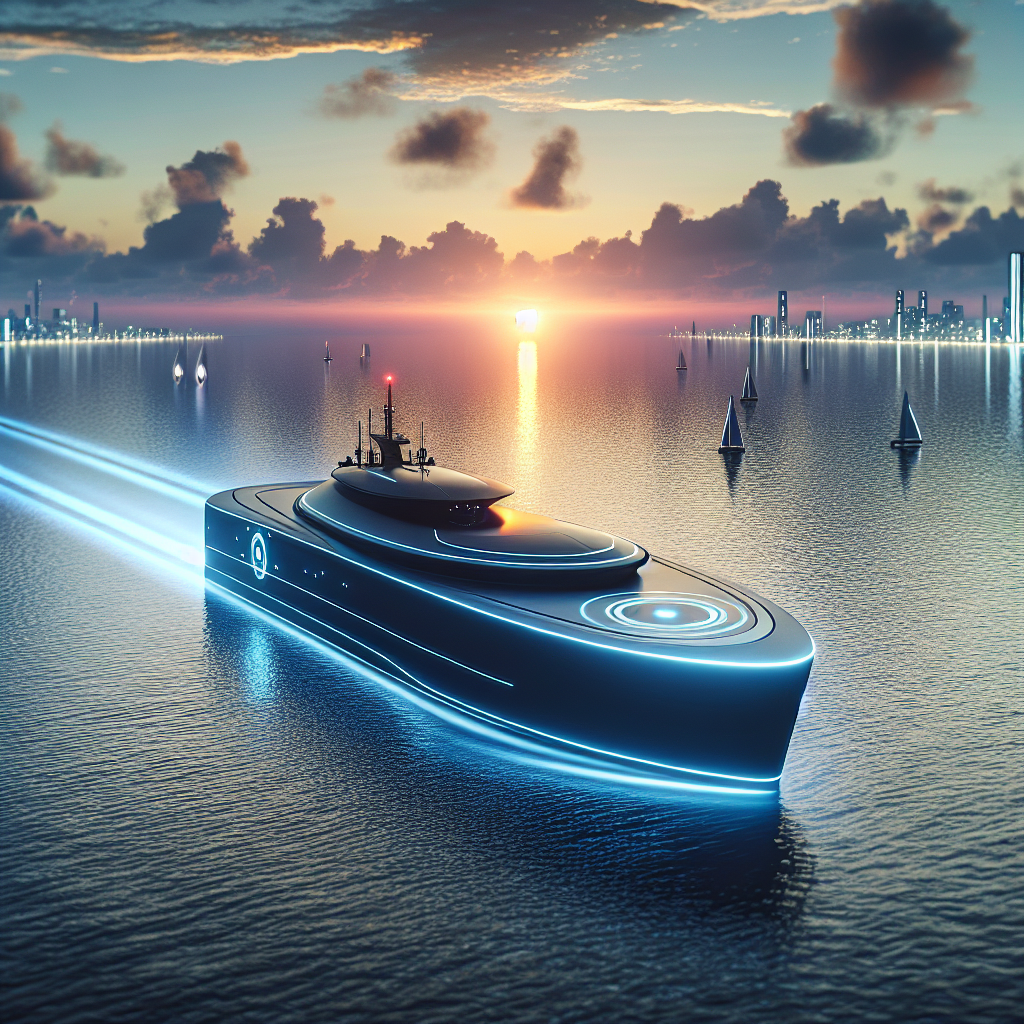The transportation industry has witnessed significant advancements in recent years, with the integration of artificial intelligence (AI) and autonomous technology paving the way for more efficient and cost-effective solutions. One area where this technology is making a significant impact is in the development of AI-powered autonomous ships. These futuristic vessels are set to revolutionize the shipping industry, offering a range of benefits such as improved safety, reduced operating costs, and increased efficiency.
The concept of autonomous ships is not new, with researchers and industry experts exploring the potential of unmanned vessels for years. However, recent advancements in AI technology have brought us closer to making this vision a reality. AI-powered autonomous ships are equipped with sensors, cameras, and other advanced technology that allows them to navigate the seas and make decisions without human intervention. These vessels can analyze data in real-time, adjust their course, and respond to changing weather conditions, traffic patterns, and other variables to ensure safe and efficient navigation.
One of the key advantages of AI-powered autonomous ships is their potential to improve safety at sea. Human error is a leading cause of maritime accidents, with factors such as fatigue, distraction, and misjudgment often playing a role in incidents. By eliminating the need for human operators on board, autonomous ships can reduce the risk of accidents and improve overall safety. These vessels are designed to operate 24/7 without the need for breaks, allowing them to maintain a constant level of alertness and responsiveness.
In addition to safety benefits, AI-powered autonomous ships also offer significant cost savings for shipping companies. Traditional vessels require a crew of skilled personnel to operate and maintain them, which can be a significant expense for companies. By removing the need for human crew members, autonomous ships can reduce labor costs and increase operational efficiency. These vessels are also designed to optimize fuel consumption, route planning, and other factors to minimize operating expenses and maximize profitability.
Furthermore, AI-powered autonomous ships have the potential to revolutionize the shipping industry by increasing efficiency and reducing environmental impact. These vessels can be programmed to follow the most efficient routes, avoid congested areas, and optimize their speed to minimize fuel consumption and emissions. By reducing the carbon footprint of shipping operations, autonomous ships can help companies meet sustainability goals and contribute to a more environmentally friendly transportation industry.
Despite the numerous benefits of AI-powered autonomous ships, there are still challenges and obstacles that need to be addressed before these vessels can become mainstream. One of the key challenges is regulatory approval, as current maritime laws and regulations were not designed with autonomous technology in mind. Shipping companies and industry stakeholders will need to work with regulators to develop new guidelines and standards for the operation of autonomous ships to ensure safety and compliance with international laws.
Another challenge is the development of reliable and secure communication systems for autonomous ships. These vessels rely on data transmission and communication networks to navigate the seas, communicate with other vessels, and receive updates on weather conditions and other variables. Ensuring the security and reliability of these systems is essential to prevent cyberattacks, hacking, and other potential threats that could compromise the safety and operation of autonomous ships.
Despite these challenges, the future of AI-powered autonomous ships looks promising, with ongoing research and development efforts driving innovation in the industry. As technology continues to advance, we can expect to see more autonomous ships entering service, offering a range of benefits for shipping companies, consumers, and the environment. The integration of AI and autonomous technology in the shipping industry represents a significant step forward in the evolution of transportation, with the potential to transform the way goods are transported around the world.
FAQs:
Q: How do AI-powered autonomous ships navigate the seas without human intervention?
A: AI-powered autonomous ships are equipped with sensors, cameras, and other advanced technology that allows them to analyze data in real-time, adjust their course, and respond to changing conditions. These vessels use AI algorithms to make decisions based on the data they collect, allowing them to navigate the seas safely and efficiently.
Q: Are AI-powered autonomous ships safer than traditional vessels with human crew members?
A: AI-powered autonomous ships have the potential to be safer than traditional vessels, as they eliminate the risk of human error and fatigue that can lead to accidents. These vessels are designed to operate 24/7 without breaks, maintaining a constant level of alertness and responsiveness that can improve overall safety at sea.
Q: What are the cost savings associated with AI-powered autonomous ships?
A: Autonomous ships can reduce operating costs for shipping companies by eliminating the need for human crew members and optimizing fuel consumption and route planning. These vessels can increase operational efficiency and profitability, making them a cost-effective solution for the shipping industry.
Q: How will AI-powered autonomous ships impact the environment?
A: AI-powered autonomous ships have the potential to reduce the carbon footprint of shipping operations by optimizing fuel consumption, route planning, and other factors. These vessels can help companies meet sustainability goals and contribute to a more environmentally friendly transportation industry.
Q: What are the challenges facing the development of AI-powered autonomous ships?
A: One of the key challenges is regulatory approval, as current maritime laws and regulations were not designed with autonomous technology in mind. Shipping companies will need to work with regulators to develop new guidelines and standards for the operation of autonomous ships. Additionally, the development of reliable and secure communication systems is essential to prevent cyberattacks and other threats to the safety and operation of autonomous ships.

